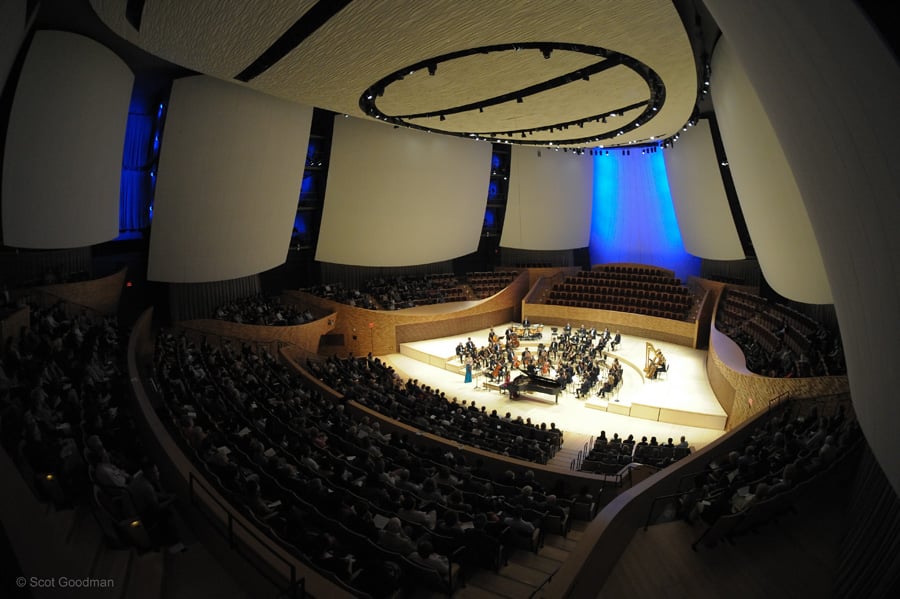The Stanford Department of Public Safety (SUDPS) is conducting a hate crimes investigation regarding a swastika etched into the lid of a piano in Bing Concert Hall.
The dinner plate-sized etching – inaccurately drawn, but closely resembling a swastika and accompanied by the misspelled word “Natzis” – was discovered on Tuesday by a Bing staff member when taking the piano out of a locked storage area and uncovering it for an upcoming concert.
Officials believe the swastika was drawn after a Nov. 18 concert when the piano was accessible to the public on the main stage of the concert hall.
SUDPS has not identified any suspects in the ongoing investigation. Stanford Live assistant marketing director Krystina Tran wrote in an email to The Daily that Stanford Live will “fully support the authorities during this investigation.”
“Hatred has no place in the Stanford community and we stand firmly against this appalling act,” Tran wrote.
The incident follows an increase in hate crimes on campus over the past year. In 2017, 22 hate crimes — all involving swastikas vandalized on various campus locations –—were reported, according to the University’s 2018 Safety, Security and Fire Report. Eight hate crimes, five of which involved swastikas, were reported in 2016, up from only two in 2015.
“Particularly in the wake of the Pittsburgh synagogue massacre just a few weeks ago, it’s critical to state that this symbol of hatred has absolutely no place in the Stanford community,” Stanford President Marc Tessier-Lavigne told Stanford News. “We reject the ignorance and intolerance behind its appalling appearance on our campus.”
The discovery of the swastika in Bing coincides with a similar incident at Columbia University, where two swastikas and an anti-Semitic slur were spray painted in the office of prominent Jewish professor Elizabeth Midlarsky. Midlarsky, who has written about the Holocaust, has been a repeated target of anti-Semitic hate crimes.
In light of the vandalism at Bing, Rabbi Jessica Kirschner – the executive director of Hillel@Stanford, the center for Jewish life on campus – believes that there is “emphatically no” broad problem with anti-Semitism at Stanford, but that some anti-Semitic sentiment does exist on campus.
“No, because we have the support of the administration [and] many many good hearted individuals, and are not systematically discriminated against,” Kirschner wrote in an email to The Daily. “But are there some people on our campus who hate Jews? I am sure there are. They don’t have the social permission in our campus community to be vocal or very public about it, but this kind of anti-Semitism bursts out every so often, and Jews note it even if we don’t broadcast it.”
However, Associated Students of Stanford University Senator Matthew Wigler ’19 identified the incident as “part of a broader pattern of anti-Semitism here at Stanford that has too long gone ignored and unaddressed.”
“The promised responses that come with each new episode in this never-ending saga of hate are always short lived,” Wigler said. “It’s past time we recognized that each individual ‘incident’ … is not isolated, but part of a complex and deeply-rooted problem that isn’t just going away without the University and the student body taking real concrete action.”
He urged the university and students to take action so that this incident will not be “just another example of forgotten aggression on a growing list.”
ASSU Senator Gabe Rosen ’19 said that he was glad to see Stanford “taking this incident seriously with an investigation.”
“It is always appalling to me that anyone would, regardless of whether out of malice or ignorance, make use of such a hateful symbol as the swastika,” Rosen said. “The symbol is a traumatic reminder of the threat that anti-Semitism, in all forms, continues to pose toward the Jewish community.”
Jacob Kaplan-Lipkin, president of Jewish Student Association (JSA), wrote in a statement to The Daily that he appreciated Tessier-Lavigne’s “swift condemnation” of the vandalism, and expressed concern about increasingly prevalent instances of anti-Semitism nationwide.
“We refuse to be intimidated, and events like these increase our resolve to build community for the Jewish students at Stanford,” he wrote. “JSA is committed to creating spaces where Jews can be proud of their identities, and we encourage anyone to reach out if they feel unsafe or alarmed.”
JSA, according to Kaplan-Lipkin, is planning a town hall on anti-Semitism for all students to attend.
The Daily has reached out to SUDPS for comment.
Contact Aparna Verma at averma2 ‘at’ stanford.edu and Erin Woo at erinkwoo ‘at’ stanford.edu.
